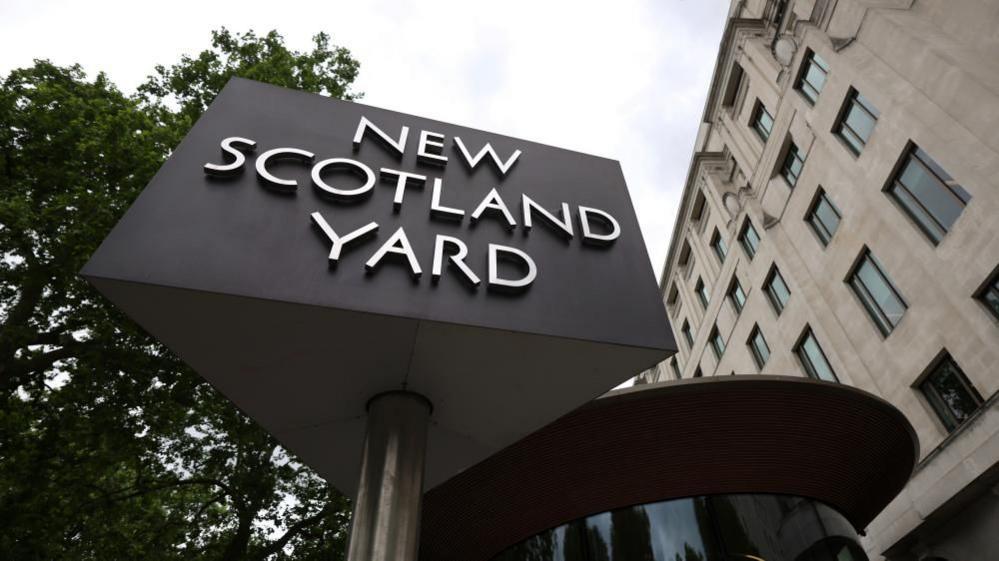Met probes hundreds of potential vetting errors

The Met said the review was part of wider work to "improve trust and confidence with the public"
- Published
The Metropolitan Police is carrying out an internal investigation into whether it made mistakes over the vetting of hundreds of new recruits.
Scotland Yard confirmed the review after The Guardian reported it was examining whether there was substandard, or no vetting, in more than 300 cases, external, including potential criminal convictions, cautions or criminal connections.
The review will focus on recruitment between 2016 and April 2023, which includes a period of rapid recruitment under the previous government's police uplift programme from 2020 to 2023.
The Met said it was part of "wider work to raise professional standards across the organisation and improve trust and confidence with the public".
The Met Commissioner previously raised concerns about the speed of hiring of thousands of new officers.
Under the police uplift programme, forces were set targets to rapidly recruit more officers as part of the previous Conservative government's aim of hiring 20,000 more across the country.
Thousands of jobs were cut during austerity measures from 2010.
In October 2022, a month after taking up the role of Met Commissioner, Sir Mark Rowley told the London Assembly he was "concerned" about the speed of hiring new officers.
He raised several issues including whether the force was "bringing the right people in", alongside training and support for new recruits.
The Met was the only police force in England and Wales to miss its recruitment target.
Vetting failings
The force's vetting and standards have also been criticised in a number of reports.
In October 2022, a report by Baroness Louise Casey found that hundreds of Met police officers had been allowed to get away with misconduct and breaking the law.
The Commissioner said he was "appalled" at its findings and that it showed hundreds of his officers should have been sacked.
Vetting failures were also highlighted following the kidnap, rape and murder of Sarah Everard by Met police officer Wayne Couzens in March 2021.
A report in February 2024 by Lady Elish Angiolini said Couzens should have been rejected when he applied to join the Civil Nuclear Constabulary in 2011, as vetting detected he had been in debt.
It found further errors were made when he joined the Met in 2018, when an allegation of indecent exposure was missed, and again the following year, when he was allowed to become a firearms officer.
The Angiolini inquiry recommended better information sharing between forces to flag vetting failures, and called for police officers and staff to face randomised re-vetting throughout their careers.
Met using 'Al Capone approach' to root out misconduct in force
- Published17 September
Women and children failed by Met Police 'boys' club'
- Published21 March 2023
Met officers who fail vetting scheme may keep jobs
- Published11 February
Last week, the Met said it had carried out its biggest ever shake up of police standards, removing more than 1,400 officers from the force since 2022 for failing to meet standards.
It said the force now had one of the strongest entry vetting policies in UK policing, and refusal rates for entering the force had doubled from 5% in 2020-2021 to 11% in 2023-2024.
Listen to the best of BBC Radio London on Sounds and follow BBC London on Facebook, external, X, external and Instagram, external. Send your story ideas to hello.bbclondon@bbc.co.uk, external